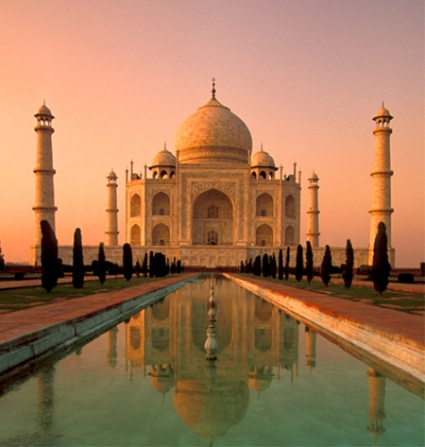April 22, 2010
Why Islamic civilization must be re-discovered

You could hardly call Islamic civilization "lost" - not in the sense of fabled Atlantis, for example -- but few people today know very much about it, or are even conscious of how many aspects of Western society owe their very existence to Islamic roots.
In some way, we all come in daily contact with microchips, space travel, medicine, physical sciences, mathematics, engineering, music, literature,arts, architecture, and spirituality.
But do any of us – including contemporary Muslims themselves - fully realize how directly all of these advances and disciplines have been built upon more than a millennium of achievements by Muslim scientists, scholars, engineers and artists?
Probably not.
It is high time for Islamic civilization to be rediscovered and celebrated by Muslims and non-Muslims alike, especially in the West.
And it is equally important that we ignore all those who, for political reasons, have a longtime vested interest in dismissing or suppressing Islamic civilization, to the point where it has become scarcely known and not even a footnote on most school and university curricula.
If you are fascinated by Islamic history and culture, there an excellent book; it is Michael Hamilton Morgan’s Lost History; the Enduring Legacy of Muslim Scientists, Thinkers and Artists. It is published by the distinguished National Geographic Society and includes a foreword by King Abdullah II of Jordan.
Lost History has been read by other significant authors on contemporary political and cultural issues, such as former U.S. President Jimmy Carter, who said that Morgan’s book "delivers a missing link to the story of an interconnected world: the achievements of Muslim civilization and its influence on East and West."
What makes this book so unique is that a post-9/11 American intellectual has dared to advocate for understanding the history of Islamic civilization and its many contributions.
Being on the "side" of an entire culture targeted by association in the American-invented War on Terror is a risky business for any author.
But Morgan pulled it off.
Why did he even bother to swim against the current in popular publishing? This is how Morgan’s own introduction answers the inevitable question:
"To lose the conscious memory of an entire civilization is especially tragic and dangerous, because each civilization, no matter how grand or flawed, is a laboratory of human ideas and ideals, of dreams and nightmares. We can learn from all of them ... By writing Lost History, I hope to show not only the contributions of an old and rich civilization. I hope to show, as Caliph al-Mamun concluded, that reason and faith can be the same, that by fully opening the mind and unleashing human creativity, many wonders -- including peace -- are possible."
While each chapter of Lost History focuses on a specific historical era, it opens with interesting dramatized "what-if" scenarios that challenge the reader to connect both past and present.
By writing this book, Morgan explains, "I am entering a potential minefield. The minefield is now given greater intensity by the current convergence of radical Islamist terrorism, the rise in ‘literalist’ fundamentalist religious models for organizing societies and individual lives, continuing battles between Israel and her neighbors, outbursts of anti-Semitism, the United States' invasions of Afghanistan and Iraq and its ‘war on terrorism,’ and political and economic crises in selected Muslim societies."
He continues: "Most Americans, including American Muslims, and even many Muslims from other parts of the world, know only the dimmest outlines of Muslim history, i.e., ‘they were great once, they invented arithmetic, but then they fell behind.’ Most Westerners have been taught that the greatness of the West has its intellectual roots in Greece and Rome, and that after the thousand-year-sleep of the Dark Ages, Europe miraculously reawakened to its Greco-Roman roots. In the conventional telling, this rediscovery of classical Greece -- combined with the moral underpinning of the Judeo-Christian faith -- led to the Renaissance and the Enlightenment, and the scientific and industrial revolutions. The intellectual contributions of Arabs, Persians, Indians, Chinese, Africans, and others in the Muslim world are relegated to mere footnotes."
And finally, he concludes, "... I hope that non-Muslims can gain greater respect and deeper understanding of their Muslim cousins than current headlines and policies would suggest and that today's Muslims can see how Islam was once applied in a way to support creativity, invention, tolerance, and diversity of thought and behavior in both society and in individual lives.
"Then ... maybe we can begin to understand the issues of today that will never be solved by force. Because if there is no other lesson to be drawn from Lost History, it is that force rarely [if] ever positively resolves issues of the spirit and the soul - whether in individuals or in civilizations."








